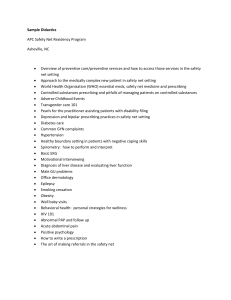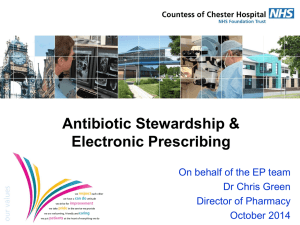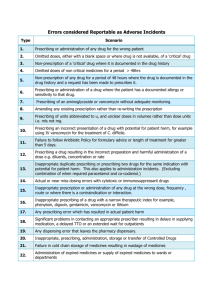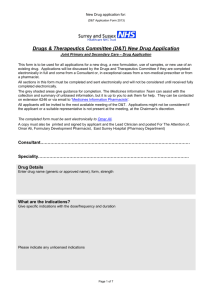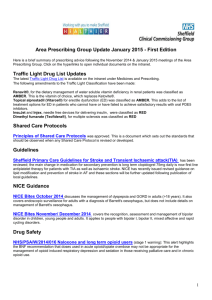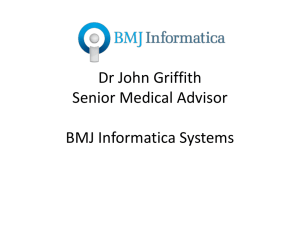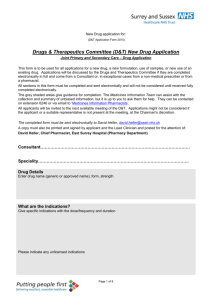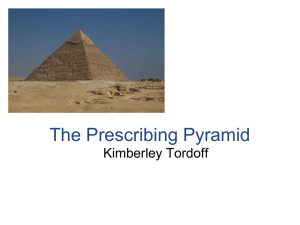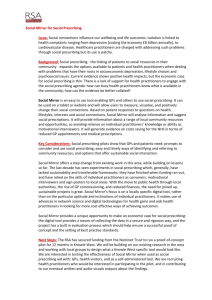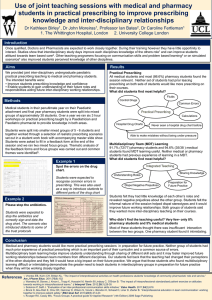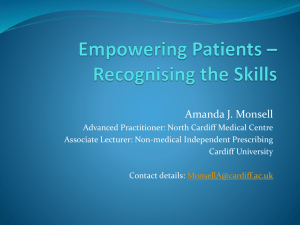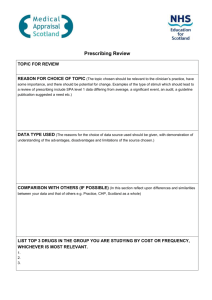Social Prescribing in the Community
advertisement
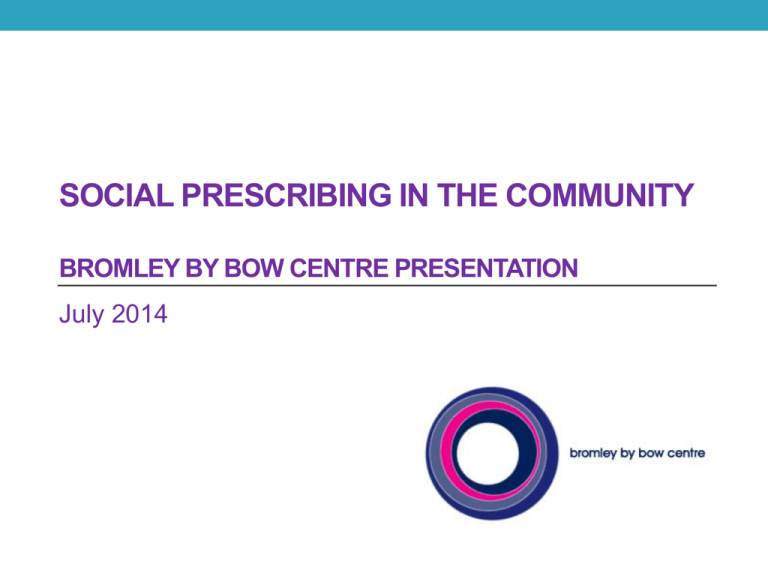
SOCIAL PRESCRIBING IN THE COMMUNITY BROMLEY BY BOW CENTRE PRESENTATION July 2014 Social Determinants of Health The issue we sought to address Over 50% of health need is socially determined. Areas where the population has poor social determinants of health, such as Tower Hamlets, have the following characteristics : • • • • • • Over-representation of long term conditions such as diabetes Late presentations of cancer Lower than average life expectancy High levels of depression High rates of child and adult obesity High rates of GP consultation, prescribing and admissions The logic for social prescribing • Improving social determinants of health improves people’s knowledge, skills, confidence and conditions to lead a healthy lifestyle • Unique position of healthcare professionals to understand patient needs • A referral made by a healthcare professional carries authority • Healthcare professionals do not always know what community services are available and how to refer patients to them How we established a social prescribing function and embedded it in five GP practices • Built relationships with patients, service providers & GP practices • Collated a directory of local services & providers • Embedded a simple referral form, to be used to refer to all services, in practices’ EMIS systems • Co-ordinator managed all referrals & supported them to access a range of local services • Follow up surveys, interviews & informal conversations to evaluate & refine the service; feedback given to GP practices Referrals Referral rates: • 331 referrals received in 6 month pilot; currently receiving 100+ per month • Increasing number of referrals have more complex needs Referral services: • 70% health programmes (e.g. Health Trainers) • 20% services for vulnerable people (e.g. older people, people with mental health issues) • 10% employment support, adult learning and/or welfare advice Outcomes 70% said it had made a significant improvement in their lives 75% said that it had resolved or partially resolved the issue 70% of patients said that they would not have accessed the service otherwise The need for social prescribing for cancer patients • 25% - 60% of cancer survivors have unmet social needs, which impacts their health and wellbeing • There is limited coordination between the services and support offered by the health and voluntary sectors, which contributes to poor cancer patient experience • As an increasing number of people are living with or beyond cancer, un-met social needs will become a problem for more people The aims of a cancer specific social prescribing service • Improve quality of life • Raise awareness of the value of community services • Support integration of care and support • Reduce demand on health services Development of a cancer specific social prescribing service • Work with key stakeholders (e.g. CNSs, GPs, Barts Health NHS Trust, Macmillan Cancer Support, London Cancer, existing social prescribing services) • Scope a cancer specific social prescribing service across East London over four months • Integrate with primary care and secondary care through linking with the Recovery Care Package (Holistic Needs Assessment and Cancer Care Review)
